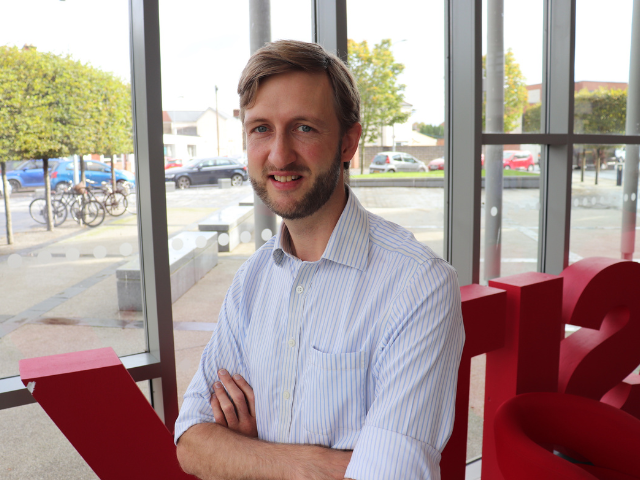Wales joins new £8M UK-wide motor neurone disease drug screening programme
22 June
Wales is one of 11 motor neurone disease (MND) centres across the UK taking part in a new ground-breaking experimental medicine programme designed to rapidly screen potential drugs in people with the devastating condition.
The new EXPERTS-ALS (EXPErimental medicine Route To Success in ALS) programme will enable researchers to screen potential drugs more rapidly in people with motor neurone disease. The Welsh arm of this study will be led by Dr Tom Massey, Specialty Lead for Neurological Disorders and Neurodegeneration, Health and Care Research Wales, and Clinical Academic Neurologist at Cardiff University.

Dr Massey said:
I am delighted that people living with MND in Wales will have the opportunity to take part in this exciting programme that is explicitly designed to accelerate drug discovery. By collaborating across MND centres around the UK, this study has the potential to screen candidate drugs at a scale not seen before and to drive innovative therapeutic development in a disease where it is sorely needed.”
MND, also known as ALS, is a neurodegenerative disease affecting the nerve cells in the brain and spinal cord. It affects about 1 in 300 and in Wales there are more than 200 people living with MND at any one time. People progressively lose voluntary movement and need complex care. Around half of those diagnosed with MND will die within two years and so there is an urgent need for new treatments.
This is a flagship programme of the new UK MND Research Institute (UK MND RI). EXPERTS-ALS is led by Professor Martin Turner at the University of Oxford and UK MND RI co-director Professor Chris McDermott at the University of Sheffield. It involves 11 MND centres around the UK and is being sponsored by Sheffield Teaching Hospitals NHS Foundation Trust.
The programme will rapidly screen candidate drugs and identify those that should be tested in larger clinical trials. Researchers hope eligible patients can begin taking part in the study in summer 2024. The programme will also help to develop the next generation of MND researchers.
Professor Christopher McDermott, co-lead of EXPERTS-ALS, co-director of the new UK MND Research Institute, Professor of Translational Neurology at the University of Sheffield and Honorary Consultant Neurologist at Sheffield Teaching Hospitals NHS Foundation Trust, said:
MND is a cruel and devastating disease and we need new approaches to identify more effective treatments to help patients. EXPERTS-ALS is a pioneering project to prioritise the drugs which have the best chance of success in halting the progression of this terrible degenerative disease. Over five years, we will be able to screen drugs faster, on a larger scale and identify which ones should proceed into phase 3 trials based on signals found in people living with MND."
Potential drugs for MND have to be tested in phase 3 clinical trials and this necessarily involves a placebo group to show if they independently benefit patients. Their success rate has been very low so far. This is partly because the drugs put forward for testing have often been chosen largely on data from laboratory studies, rather than from people living with MND. The EXPERTS-ALS programme will screen drugs in patients, looking for early signals of benefit found in blood tests such as lower levels of a protein called neurofilament light (NFL) which can indicate how advanced the condition is. A ‘go’ or ‘no-go’ decision can be reached within a few months and successful drugs prioritised for testing in the larger phase 3 trials, including the innovative MND-SMART platform, with a higher chance of a positive outcome.
The DHSC through the NIHR has awarded £8 million to the project, which will fund the project for 3.5 years (subject to contract signing). Patient charities MND Association, My Name’5 Doddie Foundation, MND Scotland, and medical research charity LifeArc intend to provide additional support to extend the study to 5 years and support additional lab research.
To keep up with the latest updates in research in Wales, sign up for our weekly bulletin.